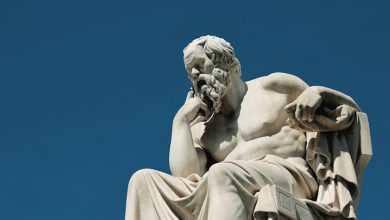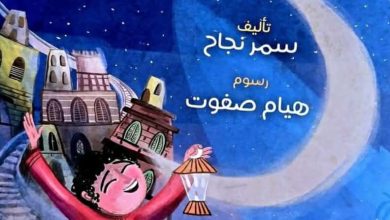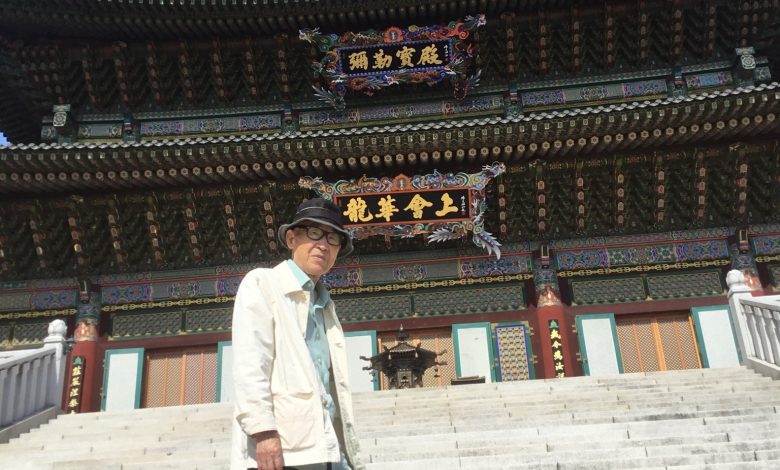
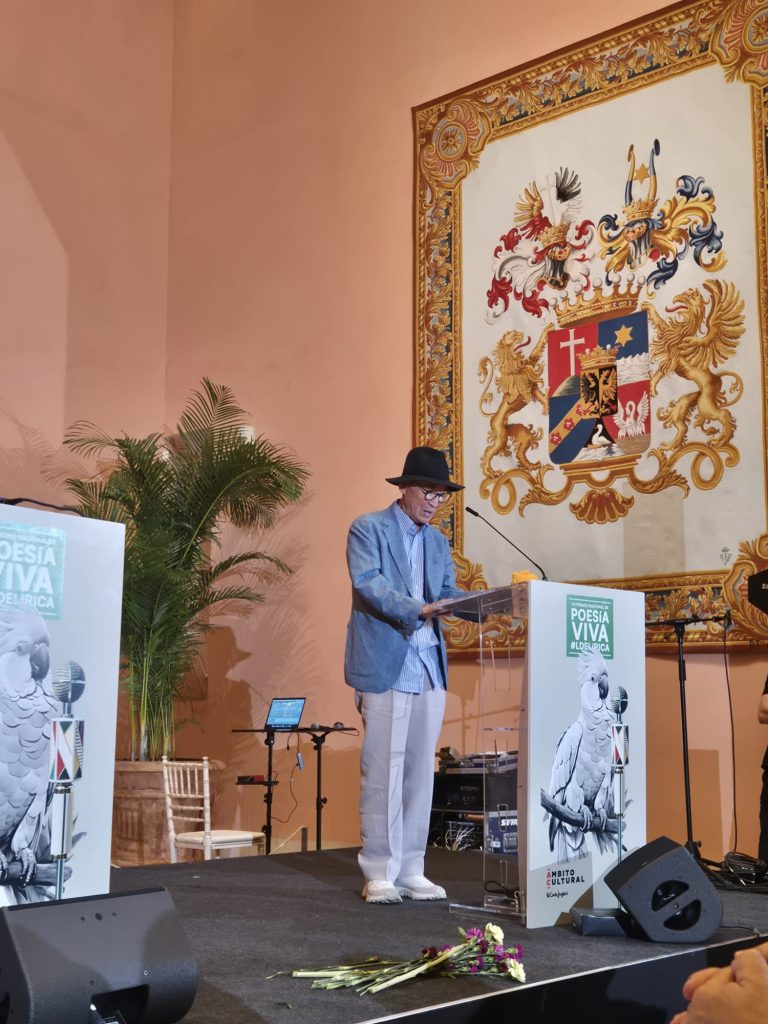 I extend my first greetings to each and every one of you in Leon. Courtesy in the singular is more internal than courtesy in the plural.
I extend my first greetings to each and every one of you in Leon. Courtesy in the singular is more internal than courtesy in the plural.
I don’t want to speak carelessly. I am my own limitation. That’s why I can only come to this place as an other. Also, I am myself trapped in my own era. I am not Rumi, the ancient Persian Sufi poet. Therefore, the realm of Sufism’s ‘being together’ cannot become my portion either. I mean that blissful time of sitting quietly like mutes, without any words to each other, without any gestures, just remaining still in silence. This would belong to the ‘affection of nothingness’ that neither humans nor other living beings can easily enjoy.

It would be that state of transcending language where I was disconnected from everyone, even from the wall that was myself, which I experienced when I hastily pursued Seon(equivalent to Chines Chan, Japanese Zen) practice as a monk in my twenties. At that time, while typhoons and floods swept even into the mountain valleys, the skull of a partisan was revealed, who must have died and been buried in mountain guerrilla warfare during the Korean peninsula’s civil war or the escalation period leading up to it. I picked up that skull, held a memorial service, placed it on my desk in my room, and concentrated on what is called ‘contemplation of dry bones’ practice. However, in any gap of my Seon practice, liberation from the self-image of ‘me’, that ego-attachment, was an impossible task. In despair, I searched and looked for a way to fill in one stroke the deep swamp between myself and others.
If the genes of human to human and self to non-self share a similarity of 99.9%, being almost equal to one another, then the boundary between you and me would indeed be the most ridiculous differentiation in human evolution. If so, expressions that have been spoken since ancient times such as ‘the world is one flower’ or ‘all people under heaven are brothers,’ the ‘us’ of hominins throughout long ages, the primitive communist societies of clans and tribes, and that early 20th century ‘International’ – all these make us vaguely infer that we are all, to some extent, a plural ‘I’ that encompasses other selves. Therefore, the lives of 80 billion deaths and the currently struggling 8 billion on this one planet of the solar system that is like a lost child in the infinite vastness of the universe can be summarized into the single abstraction of ‘I’. In that infinite number, how could any distinction between ‘self’ and ‘non-self’ be possible?
I hope that the pilgrimage site in northern Spain with its long history will not be limited to specific religious associations but will become a place of spiritual and physical purification and ascetic practice for all people on this earth, each in their own way.
It is not only the Santiago pilgrimage. The Arab world and various other places where Ibn Battuta traveled over long periods, Siberia, Altai Mountains, the Pamir Mountains, China’s Yangtze River basin, North and South America through which human migration was carried on, the waterways of Polynesia and Oceania in the Western and South Pacific that begins from Taiwan, the Arctic Circle of the reindeer nomads’ far seasonal migration, and the death-defying journeys in the desert of the ancient monks seeking enlightenment — how could these not be chronicles of devoted love achieved by the human spirit of pilgrimage? I too, in my youth, wandered endlessly through Korea’s mountains and fields as a ragged mendicant monk.
Today I stand at León’s altar of poetry, which consecrates a poet from East Asia, and it is surely not unrelated to the pilgrimage footsteps mentioned above. Therefore, I feel quite heavily the duty as a beneficiary of this honor bestowed with such gracious hospitality.
What is truly remarkable is the fact that, since those Paleolithic hand axes, some common ancestral gene connects the genes of the place I left and this place, inspiring the notion of synchronicity. This very inspiration may be directly connected to the mantle buried deep in the geological layers, more than earthly sensation. Since the earth does not exist without the infinity of the heavens, I am myself under the sky. No one knows how long the earth will remain as earth. Much of the current geological strata of Earth was once under the sea. There are also geological diagnoses that the magma beneath the glaciers on Earth may soon spew forth the flames of volcanoes that have been buried for tens of thousands of years. Life on this earth unfolds while embracing such instability of the land.
Two years ago, I crossed the French side of the Pyrenees Mountains for ten days on a family trip. Looking at the area toward the Spanish side of the Pyrenees I confirmed that it is the front of the Pyrenees. At the end of that crossing, we visited Portbou, a small Spanish port, for a day.
The language of the Basque region in northern Spain was a language widely used in Paleolithic Europe, but due to pressure from Celtic tribes using Gaulish, it settled in the Pyrenean valleys. This is similar to the case that, during the fall of Rome, a group of Roman aristocrats overcame tremendous hardships to cross the Maloja Pass in the Alps and settled in what is now the Engadin region of Switzerland (the source of the Inn River), continuing their own language, Romansh, which survived as one of Switzerland’s four official languages. Throughout the Basque region, people serve Euskera as their mother tongue, and their linguistic identity consciousness is well known.
Basque is unique. It is an autonomous language that has evolved separately from Indo-European languages. Solitude is indeed a reality full of trials. Relationships are always phenomena in motion. The long-standing self-consciousness that encompasses the stateless and anarchistic isolated nature of the truly mysterious Basque language, the majestic natural philosophy of Castile, and even the classical intoxication of Rioja lies dormant as a unified unconsciousness, newly awakening the territorial spirit of León. Along with this, it awakens in me the medium of poetry.
This world is by no means a simple arbitrary space that can be taken lightly. The ecology of all existence consists of what kills what, who completely devours whom. From that distant primordial age of single-celled prokaryotic organisms, one cell began killing other cells. As this evolved into multicellular forms, it became even more rampant. This world, whatever it may be, is filled with life’s instinct for self-reproduction. Indeed, life is blind. With such an ecology, peace or coexistence is merely an extremely rare state of temporary calm. It is, in any case, a vacant state as a variable and merely a phenomenon of mutual symbiosis that appears by chance.
This phenomenon progresses not only in this world but in the rise and fall of all things in the universe, in the impermanence of the cosmos. Discord is indeed the inherent principle of the world’s continuance and the constant of the universe. How could harmony arise without noise and dissonance in this world? This is the raison d’être of harmony.
The physical phenomena of this world and universe are therefore not being but action. Among Goethe’s many words, his statement ‘In the beginning was the Act’ overcame ‘In the beginning was the Word’ for this reason. All things in the world are not ‘things that exist’ but ‘things that act,’ ‘things that go,’ and ‘things that change.’ Even passivity is activity. It is not fixed permanence but changing impermanence. This world is a place where something goes from somewhere to somewhere else and where something changes into something else. If ancient Greek ontology is a rigid concept, then by bestowing action upon that being, the concept comes vibrantly alive.
Human individual society inevitably creates etiquette, which often ends up being a power relationship where the weak submit to the strong. The best relationship between one and another is always a second-best relationship. Therefore, despite theories of inherent human evil or evolutionary survival of the fittest, trade, gift exchange, and certain cultural exchanges become possible through the will to seek to resolve the conflict. In such cases, distant relationships are more natural than close ones. Longing stimulates romance and friendship even more.
Throughout my life as a poet, I have passionately participated in the cause of ‘peace.’ I have written many poems about peace and attended numerous domestic and international events for peace. As Korea’s liberation from colonial rule was ironically transformed into a divided system, I came to take the task of resolving the hostile relationship between South and North Korea. I went to Pyongyang as a special envoy during the historic event of the ‘Inter-Korean Joint Declaration’ achieved by the meeting between the South Korean president and North Korea’s top leader, where I recited a poem expressing my hope for peaceful reunification of my country. I also passionately recited a ‘Song of Peace’ at the opening ceremony held at UN headquarters when the UN, under Secretary-General Kofi Annan, hosted the ‘World Peace Summit.’ Subsequently, the UN established ‘International Day of Happiness’ to address humanity’s wars and unfortunate conditions, and when a poetry collection themed on ‘happiness’ was published, I was commissioned to write several poems for it.
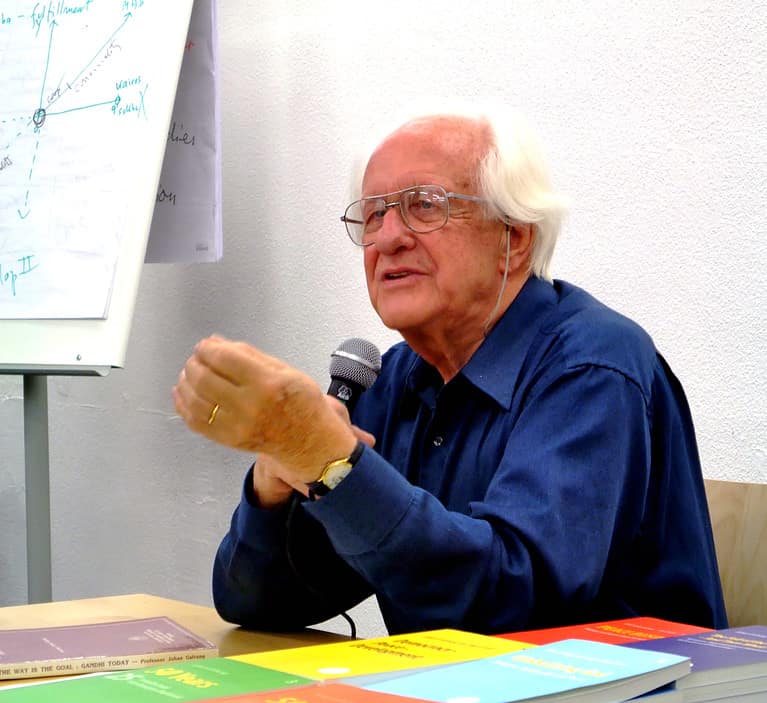
I also attended the World Peace Festival held at the Norway Peace Park together with Johan Galtung, the founder of peace studies, where I recited a peace poem I had written for the event. I even went to Libya under Gaddafi’s rule to confirm peace and friendship. Three years ago, when Ukraine was invaded and Swedish poets living in Germany took the initiative to plan a poetry collection calling for peace, I also participated and wrote a peace poem. In that poem, I wrote ‘only defensive war is a holy war.’ Last year, when the World Poets Movement (WPM) organized a poetry reading for the suffering Gaza Strip, I enthusiastically participated and recited online a poem I had written for Gaza.
However, Korea is in a more hostile confrontation between North and South than before, Ukraine is still in the midst of the flames of war, and genocide is still taking place in Gaza. Various other wars are expanding their fronts in other regions. Sometimes I suffer from self-reproach, wondering if peace becomes more distant the more I write poems of peace and anti-war poems. In the depths of my consciousness, there is always an experiential despair about peace that stirs within me.
In all creation and development, two forces inevitably operate: aggression and defense. All power is a force of strength, and all nations are countries born from war. All emperors and all leaders are, in short, conquerors of power. The ancient Chinese emperors of successive dynasties who called themselves Sons of Heaven (天子) claiming to have received the imperial mandate (勅命) from the Heavenly Emperor (天帝), and the Western theory of divine right of kings, are both built upon the logic of violence. Perhaps Costa Rica, a small Latin American country that forms a buffer zone of power as a nation without an army, represents a very exceptional miracle in today’s age of war supremacy.
The current Gaza Strip issue and the intensification of Middle Eastern conflicts are also fundamentally rooted in the unyielding power dynamics between the strong and the weak. Whatever justice they advocate is merely their own justice, and whatever truth they claim is truth only from their perspective. Even God is only their own God.
This self-centered equation of world history incites acts of violence. How could the ancient Chinese Xiongnu be gentlemen and the Han and Qin dynasties be ladies? How are the ancient Pax Romana and modern Pax Americana holy patron saints? Trump is America’s naked self-portrait. On this planet, how hypocritical the highest imperative of ‘self and others as one’ is! If it is not hypocrisy, then the unity between the two would only be that of a most vicious hell.
The East Asian pictograph ‘道’ meaning ‘way’ does not refer to the path of truth. Its ideographic meaning is to kill the enemy’s leader and hang his head high in front of the castle gate, using it to threaten hostile forces. And the character ‘我’ meaning ‘I’ is a pictograph showing ‘a state of being firmly armed with a spear’.
Perhaps because one cannot live solely in such a brutal reality, there exists in India and various regions and cultures of Asia a greeting custom called ‘hapjang’ (合掌), the two palms brought together. This is a sign that no weapon is held in the hands. Along with this ‘hapjang’, there are the Semitic greetings of kissing and full-body embracing. And the Western handshake also originated as a sign of being unarmed, showing that one’s hands are empty.
There are Kant’s ‘Perpetual Peace’ and the modern Korean independence activist Ahn Jung-geun’s ‘Theory of East Asian Peace,’ but no matter how moving their arguments may be, outside of these contexts, the word ‘peace’ is likely to be a dead language.
The misfortune of poetry lies precisely in having to simultaneously experience, in real time, the sounds of birds, water, and wind of this world alongside the indiscriminate bombing and hellish chaos of Gaza Strip. When the world is sick and in pain, how could poetry not be sick and in pain? When the world is buried in suffering, how could the poet not suffer? The Russian poet Lermontov sang that poets must weep for others from the age of three.
I make this despair of poetry my most precious asset instead and have the speakers in my poems seek out even the remote corners of the world. A poet must become blind from staring directly at the midday sun and, as a night watchman who cannot sleep through the entire night, must swallow the darkness with the whole body.
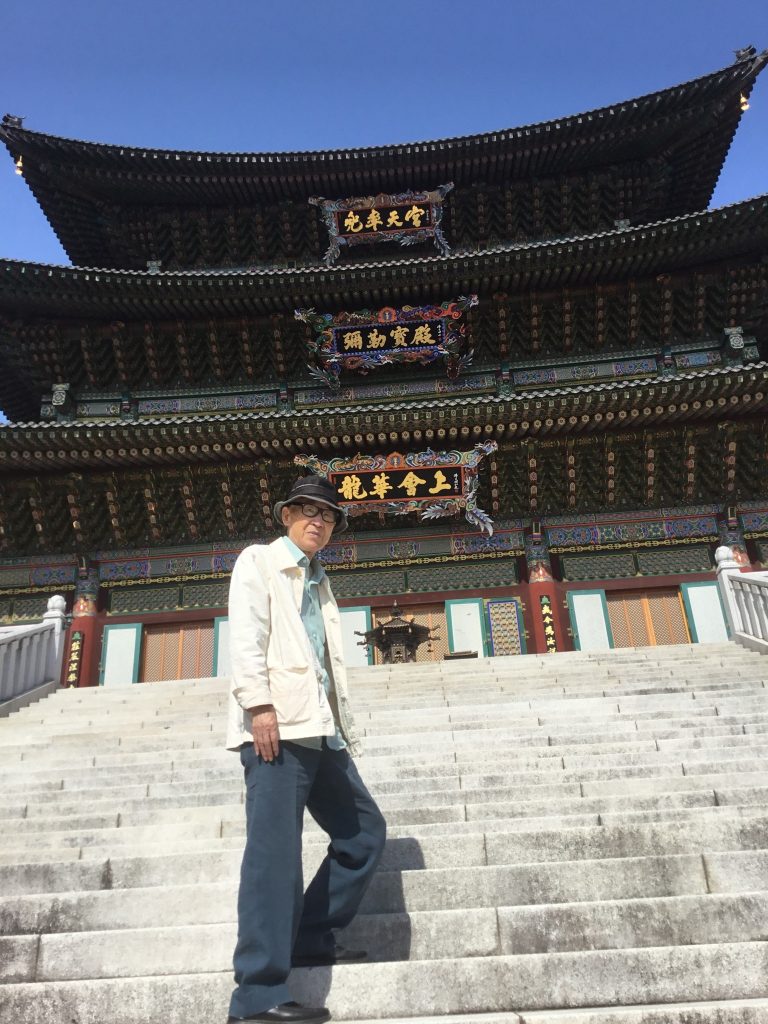
I disregard the settings of Buddhism’s Tusita Heaven paradise and the Pure Land, Taoism’s immortal world, and Abraham’s Garden of Eden and heaven. Both living and non-living things are material phenomena composed of the elements of the universe. If we examine the birth of a baby, we will come to understand how vast and distant the remote causes of that baby are. A baby is truly both humanistic and cosmic.
The baby’s first cry may well be the beginning of poetry. After that cry, the baby learns its mother’s language while nursing at its mother’s breast. Regardless of linguistics’ universal grammar, the baby’s language is not the language of the nation but the language that comes from the mother’s mouth. It is the mother tongue before it is the national language.
Such intimate life activities of nature will enable the natural assimilation called pilgrimage that takes place in the gaps of human life. In fact, pilgrimage corresponds to humanity’s genetics, carved into the long span of time – the evolutionary process of living beings from sea to land, and humanity’s global migration over 500-odd million years and 500,000 years.
Due to this human expansion, despite countless extinct languages, approximately 6,500 languages still remain in valleys and territories around the world. Among these languages, Spanish is one of the four major languages. And English has become the language of the global market and the language of survival. In the digital world, English is also the standard symbol. Korean language ‘Hangeul,’ which enjoys glory in written language, is currently a popular subject taught at many universities around the world, but it is difficult to guarantee its future.
I was deprived of my native language in my childhood. My name was also taken away and I was forced to adopt a foreign country’s name. Only after the colonial era of self-loss ended was I able to recover my name, language, and writing. I was twelve years old.
I first encountered poetry from our country in a Korean language textbook after Liberation. Then, the Korean War broke out, cities became ruins and the countryside was reduced to ashes. In that emptiness I became a poet. I was twenty-five years old.
In the African era, there came to be the early language of Homo erectus from one million years ago, along with the pheromones of ants, the dances of bees, the sounds of birds and the gestures of horses, the songs of elephants and whales, and the expressive behaviors of chimpanzees and bonobos.
Then, around the time humanity left Africa 60,000 years ago, they finally began to use the noun ‘tomorrow’ for the first time and started saying ‘hunted’ as the past tense of ‘hunt.’ From this point, human communication activities became more active. As humans spread to the ends of the earth along with language, they eventually ended their long migrations and developed into settled communities, and the nomadic forms of expression gradually became regionalized.
Humanity that left Africa spread all the way to the tail of the South American continent, and the Yaghan people, one of the minor tribes of Patagonia there, survived until recently. Just two people of the Yaghan tribe who remained until 2-3 years ago were cousins. However, these two women became bitter enemies over a trivial matter, one went to the United States and disappeared, and when the remaining old woman died, that minority ethnic group became extinct.
Among the languages of that Yaghan tribe, one word ‘mamillapinatai’ is very profound and meaningful. When interpreted, it means ‘I wait patiently for you, whom I love, to speak first the wonderful content I was about to say.’ It is an extreme virtue of not monopolizing a something very noble but allowing another to enjoy that value first. Such vocabulary is a linguistic level that is difficult to find in the Ural-Altaic language family or any other language family. Despite having such a language, the fact that the last two people became enemies and parted ways is ironic and also shows that this is a part of human limitation unrelated to language.
Right now, throughout the world, language itself—no, language taking the lead—has become a symbol of struggle and competition, revealing the reality of our modern world through a state of linguistic ‘digital Red Guards’ that displays all manner of hateful and cursing malicious comments. Indeed, late capitalist neoliberal advertising is now filled with tremendous violence and temptation. In this flood of language, we see that even poetry abuses language and its expression is excessive. If poetry drives the self-sublimation of language, then in times like these, poetry must once again solemnly be reborn as a flower—just as the lotus blooms from the mud.
A few years ago, I directly said to a celebrated Japanese poet who visited my home: ‘The most frightening thing in poetry is metaphor. Poetry should not carelessly employ metaphor. Perhaps the great error of modern poetry since its beginning has been its fanaticism toward metaphor.’
Metaphor is not truth itself. It is merely an expressive technique that substitutes for the true nature of things and life. However, a great perversion occurs where metaphor instead becomes the essence. This is similar to how eunuchs in ancient royal courts would usurp all royal authority. Particularly, in the case of the metaphor of modern poetry, the technique of description and expression precedes its subject matter. Function becomes substance.
Perhaps metaphor may have been transferred from the rhythm of cosmic waves that have permeated the human inner world during humanity’s long evolutionary process. I mean the representation that has arrived today through the many previous lives as poetry’s ‘jataka’ (birth stories – tales of previous lives). The origins of poetry are not limited to what’s said in Confucius’s poetics or Aristotelian poetics.
I wish that my language would be virgin letters, transcending the long history of poetry interpretation and poetics thus far. Since a poem written by the poet Canosch Khadro was left on a Sumerian clay tablet in ancient times and preserved in writing, that poem has served as the ancestral poem written thousands of years ago. However, I ultimately do not allow it. Poetry is indebted to previous poetry, but, at the same time, the poem written now is the first poem.
Along with this discussion about the origins of poetry, the ‘death of poetry’ has also been heard intermittently since about 200 years ago. Particularly in the 21st century, the phenomenon is prominent that poetry and philosophy are diminished by digital civilization, AI’s unprecedented cutting-edge industries and advanced sciences.
I wish to make the poetry left behind in precisely this kind of era my ultimate proposition. I hope that not happiness but the ordeal of volcanic eruption bursting through glacial layers will be a blessing to my lifelong primitive poetic heart.
When poetry dies, humanity’s fundamental emotions die with it. At a lecture titled ‘Poetry and Science’ that I gave at a graduate science university, I spoke of the dream of bringing ‘science to poetry and poetry to science,’ allowing the two to realize an entirely new metaphor. This coincidentally indicates that both have awakened to a sense of crisis — science faces a crisis of excess, while poetry faces a crisis of alienation. The fusion effect created by the meeting of these two can guarantee transforming the weakness of pure gold into the strength of an alloy.
The reason I was delighted along with my wife to receive an invitation from León was that the letter arrived on my daughter’s birthday, who had been staying in Korea for some time and that we had decided to visit Paleolithic sites in our country to commemorate her birthday. Where on earth is León! León is a place that belongs to the extensive semantic network of northern Spain, known as a global center for Paleolithic hand axes, far preceding the current traditional residential life.
First, up there in the Altamira cave, there are paintings of bulls, and beyond the Pyrenees to the east, inside the Chauvet cave, a grand chorus of human hands with finger impressions is printed in the darkness. Perhaps the Guggenheim in Bilbao, near the plains of León in Castile, was intentionally built close to these sanctuaries of ancient human heritage.
The excavated and unexcavated remains in this area coincidentally have correlations with the prehistoric sites in Jeongok-ri, Korea, leading us to anticipate some correspondence between these two prehistoric eras. That is why I happily responded to Leon’s invitation.
The excavations of both archaeological sites were each accomplished by chance. And the surprising fact revealed by the excavations is that they achieved the remarkable feat of overturning the error regarding the spread of the Homo genus – the misconception of ‘from Africa to Asia’ and ‘from Africa to Europe’ that had been solidified by biased interpretations of prehistoric evidence. I would like to accept this simultaneous empirical verification in anthropological archaeology as a paleo-anthropological omen that will create some kind of ensemble between the poetry of this place and my poetry.
Because of the fact that 1.4 million-year-old early human fossils have shattered conventional notions about Homo erectus, more sites in the area east of Burgos, near León, have been left as places that deserve proper archaeological verification. I confirmed this fact from Professor Bae Gi-dong, an internationally renowned Korean anthropologist.
This revises the theory of humanity’s migration from Africa to Asia. Also, the authentication that Korea’s Jeongok-ri hand axes are related to Paleolithic Homo erectus overturns the Eurocentric theories that marginalized Asia. Even though these two places are unaware of each other, the coincidence of these two truths will become an inevitability and realize making the past present. Therefore, I hope that the poetry of these two places will also open a new poetic world and create another world of poetry.
By extending my family’s encounter with the Paleolithic era to this very place as a site of prehistoric inspiration, I hope to secretly re-experience León’s ancient years. Looking up at the night sky here, I want to become a bird that speaks in the highest pitch. As Picasso cried out, ‘After Altamira, all is decadence,’ the womb of creation buried in and around León is what reaches into the future. Perhaps I fall into the genetic delusion that I could summon some poetry from before Homo sapiens with the monotonous melodies of that time. This is precisely the archaeological imperative of my poetry.
The way traces of the Paleolithic era in this place are known scattered on the surface here and there or still lie dormant buried several layers underground resembles the state of poetry and what existed before poetry. Poetry contains within it even the automatic and passive rhythms of the timeless past of poetry’s Permian period and poetry’s Cretaceous period and also, before that, of the time and space spanning thousands of light-years across countless large and small galaxies beyond this planet of universal gravitation. Modern poetry is connected to the prehistoric poetic realm. This trans-temporal radiance and flight that flows through ancient and modern times is precisely what poetry is. Therefore, modern civilization is connected to the destiny of poetry that extends into the future. The author of The Immortal Gene also asserts that past and future are one.
The current poetic frustration will likely be just a punctuation mark for a while in this long process. Soon, poetry may inevitably demonstrate some performance, filling every corner of this earth with poetic rhythm and creating cosmic resonance. This is because poetry is an inevitable element of humanity. Man cannot live without poetry.
Human passion forms communities through songs imbued with the screams of the Homo habilis period, the lamentations of hominins, and the lyricism of Homo sapiens, opening the boundary of the self and making the members participate in society.
Songs from 10,000 years ago had very simple, rhythm-centered patterns. The sounds ‘i’, ‘a’, and ‘u’ could not be pronounced. As the palate evolved, neurochemical substances in the brain caused human language vocalization to evolve. Poetry is also not something celestial that is detached from the process of evolution.
The Korean monk Wonhyo in ancient times juxtaposes truth through language with truth beyond language. In modern times, Wittgenstein says that the limits of my language are the limits of my world. I, too, yearn to encounter the infinite rhythm beyond language and letters, not inheriting anyone’s tradition but as a naked wanderer on the plains who has abandoned all teachers, with the cosmic mathematics that discovers one and ten thousand from a single word. This is what I call the theory of wave poetry.
Ah, the infinite repetition of waves! That is what brings to bloom the primordial flower within infinity. In my youth, after several suicide attempts, I drifted to Jeju Island in the southern tip of Korea and lived there for three years. I spent my days by the seaside, gazing at the waves. I came to realize much later that I had found the unwritten law of my poetry from those real-time waves that came to the vertical cliffs there and shattered to death without surrender.
I do not believe in the Western systems of thought such as ‘ideas’ or ‘reason.’ For this reason, I sympathize more with Hume or Rousseau. Also, I am distant from the monotheism of the Semitic peoples or Zoroaster’s dualism of good and evil. However, the poetic emotion embedded in their lives as such is sufficient to be assimilated into my poetic experience. In the process where emotions sometimes require the measure of reason to manage emotional disorders, reason becomes a means for emotion. In other words, reason becomes not a subject but a method. Poetry is an innocent flower that has cast off all such subject-object actions.
The unconscious state of flowers! Flowers have been blooming for a long time and will continue to bloom for a very long time to come. Similarly, poetry also has accumulated at least 10,000 years of poetic traces. So perhaps the death of poetry ultimately becomes the life of poetry. When Homo sapiens becomes extinct, poetry will die with us, but perhaps poetry will be born as another amoeba unknown to us. The withering of flowers means the blooming of the next flowers.
Two years ago, I published the epic poem Cheong – The Song of Simcheong. Critics say it may be the longest epic poem ever written in the world. Now I am conceiving another poetic work, an epic poem called Destiny that sings of humanity. Unlike ancient Greek tragedies where the sense of fate encompasses the vicissitudes of an individual, the rise and fall of the powerful throughout the age of gods and the age of heroes, what I want to depict in Destiny is the entire journey of humanity, without specification, that accompanies the indifferent operation of the universe.
I want to approach even the life of the world not as a single tree but as a forest. I want to experience secondhand the genes and fossils of cosmic operation that a forest contains, as well as its geological layers. I want to reinterpret even a single solitary individual in relation to the family resemblance or human homogeneity at its origin. For instance, my poetic theme is to give narrative form, as a continuous story, to the ancient Indian Aryan worldview of the unity of Brahman(universe) and Atman(self) and, to overcome it, Buddha’s concept of no-self (anatta) and causality and relationship(pratītya-samutupāda).
What I am working on alongside my epic poetry project is a series of poems called Poems of the World. So far, I have published 3 volumes with a total of 460 poems. Two more volumes will be out this autumn. I don’t know whether it will become 10 volumes, or whether it will surpass the 4,001 poems in 30 volumes of Maninbo(Ten Thousand Lives), or when it will end. Tibetan Buddhist mandala paintings show the magnificent act of immediately erasing them as soon as they are completed with devotion. I too always write poems, but after writing them, I let the poems leave me. The poems go out as dust of the world, as cosmic dust.
I once again express my gratitude for the friendship of Leon’s young poetry circle, which has encouraged my poetic sprint in my 90s from afar. From this point on, I will be myself after León.
Gracias!
Summer 2025
Ko Un
The English translation of Ko Un’s essay “Poetry’s Hand Axe,” that he wrote especially for the young poets, in the form of a thank-you speech to the Leteo Prize. The audience was deeply moved when Ko Un read it at the Festival. Ko Un wrote it in Korean, and Brother Anthony and Professor Sang Wha (Ko Un’s wife) translated it into English and the Spanish young poet Ben Clark, who is the translator of The Art of the Clouds, the anthology published in Leon to celebrate Ko Un, translated it into Spanish from English. The interpreter Dr. Chung read it, comparing the Korean original with the Spanish translation, and she made some corrections in parts.


